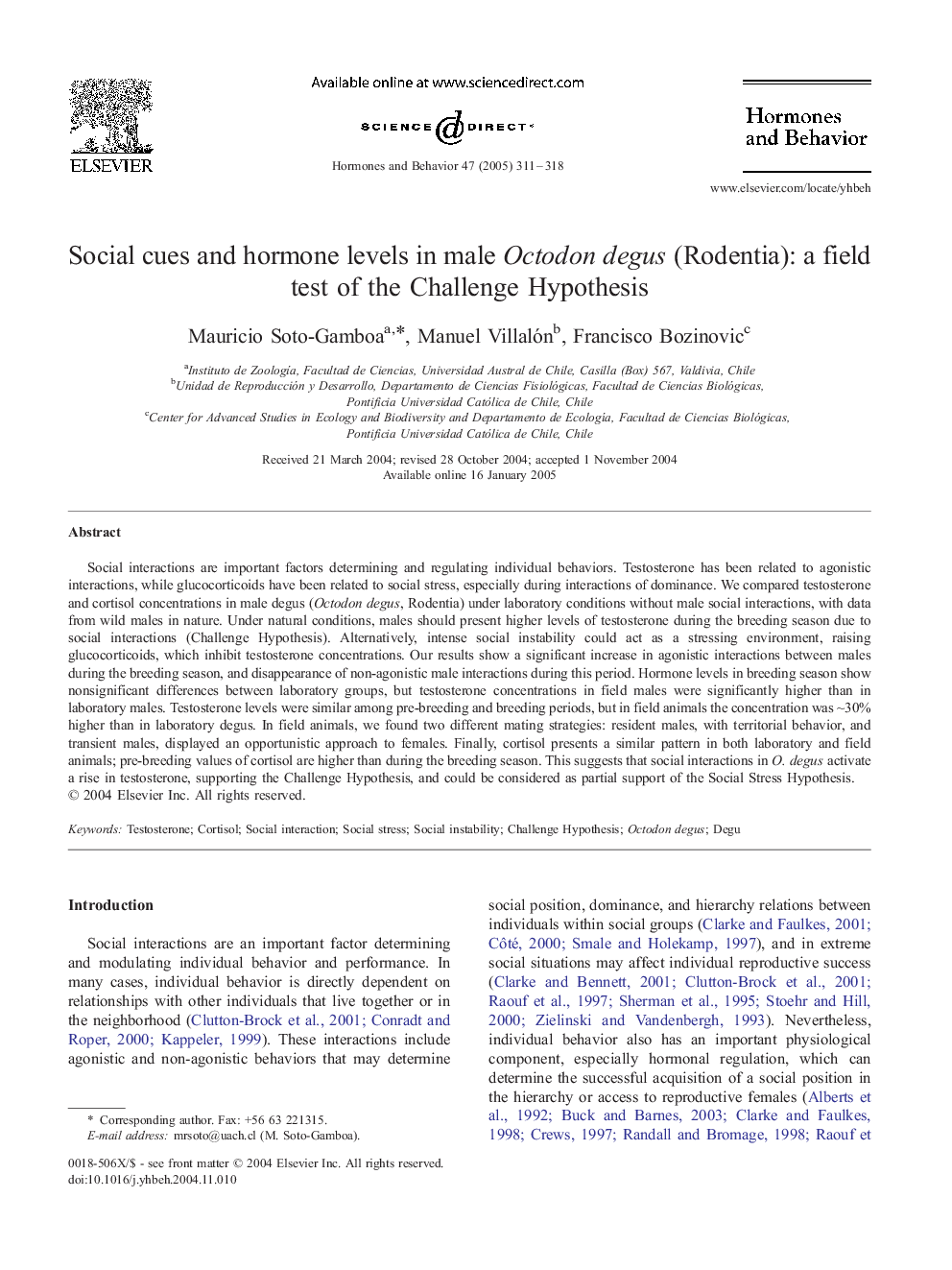| کد مقاله | کد نشریه | سال انتشار | مقاله انگلیسی | نسخه تمام متن |
|---|---|---|---|---|
| 10301577 | 540919 | 2005 | 8 صفحه PDF | دانلود رایگان |
عنوان انگلیسی مقاله ISI
Social cues and hormone levels in male Octodon degus (Rodentia): a field test of the Challenge Hypothesis
دانلود مقاله + سفارش ترجمه
دانلود مقاله ISI انگلیسی
رایگان برای ایرانیان
کلمات کلیدی
موضوعات مرتبط
علوم زیستی و بیوفناوری
بیوشیمی، ژنتیک و زیست شناسی مولکولی
علوم غدد
پیش نمایش صفحه اول مقاله

چکیده انگلیسی
Social interactions are important factors determining and regulating individual behaviors. Testosterone has been related to agonistic interactions, while glucocorticoids have been related to social stress, especially during interactions of dominance. We compared testosterone and cortisol concentrations in male degus (Octodon degus, Rodentia) under laboratory conditions without male social interactions, with data from wild males in nature. Under natural conditions, males should present higher levels of testosterone during the breeding season due to social interactions (Challenge Hypothesis). Alternatively, intense social instability could act as a stressing environment, raising glucocorticoids, which inhibit testosterone concentrations. Our results show a significant increase in agonistic interactions between males during the breeding season, and disappearance of non-agonistic male interactions during this period. Hormone levels in breeding season show nonsignificant differences between laboratory groups, but testosterone concentrations in field males were significantly higher than in laboratory males. Testosterone levels were similar among pre-breeding and breeding periods, but in field animals the concentration was â¼30% higher than in laboratory degus. In field animals, we found two different mating strategies: resident males, with territorial behavior, and transient males, displayed an opportunistic approach to females. Finally, cortisol presents a similar pattern in both laboratory and field animals; pre-breeding values of cortisol are higher than during the breeding season. This suggests that social interactions in O. degus activate a rise in testosterone, supporting the Challenge Hypothesis, and could be considered as partial support of the Social Stress Hypothesis.
ناشر
Database: Elsevier - ScienceDirect (ساینس دایرکت)
Journal: Hormones and Behavior - Volume 47, Issue 3, March 2005, Pages 311-318
Journal: Hormones and Behavior - Volume 47, Issue 3, March 2005, Pages 311-318
نویسندگان
Mauricio Soto-Gamboa, Manuel Villalón, Francisco Bozinovic,